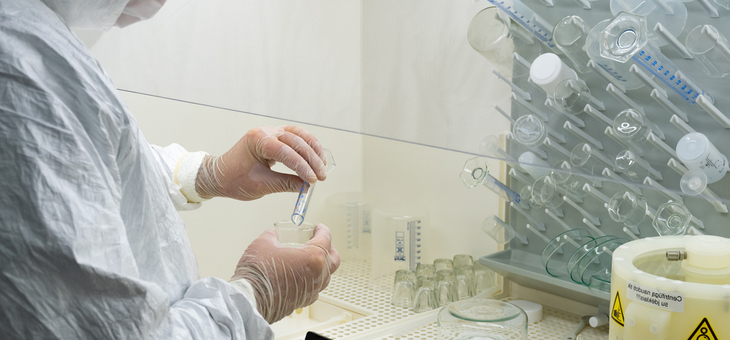There appears to be good news on the COVID vaccine front, with the government detailing a big jump in supply and new research showing the Moderna and Novavax vaccines are very effective. But rollout issues remain, according to multiple sources, and a rethink on the age limit for the AstraZeneca jab presents a fresh problem.
The Australian Technical Advisory Group on Immunisation (ATAGI) has advised that AstraZeneca be given only to those aged 60-plus – up from 50-plus – due to 12 new cases of a blood clotting disorder, placing further pressure on supplies of Pfizer which are already stretched.
A 52-year-old woman died earlier this month after a clot linked to AstraZeneca, another Australian died after receiving the jab and at least 48 others have had either a confirmed or probable clot linked to the vaccine.
A new peer-reviewed study, published in the Journal of the American Medical Association (JAMA) and which involved healthcare workers in Boston, found the Moderna vaccine could start reducing infection rates after eight days. The 42-day study found the vaccine was 77.5 per cent effective after eight days and 95 per cent effective from day 15 until the end of the study.
Novavax Inc has reported promising late-stage clinical trial data showing its vaccine was more than 90 per cent effective against COVID-19.
The New Daily reports that if the Novavax and Moderna vaccines are approved by the Therapeutic Goods Administration (TGA), Moderna will supply Australia with 25 million doses and Novavax will supply 51 million doses from late this year.
The TGA has given no indication of when a decision on the vaccines will be announced.
Read more: Calls for other states to follow WA’s mandatory vaccination lead
Paul Griffin, associate professor of medicine at the University of Queensland, explained that Novavax was different from mRNA vaccines, such as Pfizer and Moderna, and viral vector vaccines, such as AstraZeneca, because it was “simple, traditional” and easy to store.
“Novavax is a protein-based vaccine,” he told The New Daily.
“It doesn’t require extreme cold chain storage (like mRNA vaccines) and there are no significant adverse events associated with that vaccine. And it appears highly effective.”
Federal health minister Greg Hunt announced on Monday that 1000 pharmacies and an extra 850 rural and regional clinics would be able to start offering Moderna doses from October, pending TGA approval.
Mr Hunt said on Tuesday: “We’re in a strong situation.
“We’re covered for 2021, for 2022, if necessary,” he told 2GB Breakfast.
“When you think of our program, we have the AstraZeneca and Pfizer as the backbone this year, which will be supported by Moderna.
“Novavax is there both as a back-up for this year, but also as a potential booster for next year.”
Read more: Reliance on the army shows Australia is ill-prepared for disaster
But other parties remain sceptical about the efficiency of our vaccine rollout, even with the promised extra vaccines and doses.
Bill Bowtell, infectious disease expert and adjunct professor at the University of NSW, said “we are still somewhere about 80th in the world, with 97 per cent of Australians today not fully vaccinated”.
Johns Hopkins University reported yesterday that Australia had administered 5,931, 245 doses, that 698,892 people – or 2.76 per cent of the population – had received two doses.
Prof. Bowtell said it would take us until late May 2022 before we could expect to reach the 40 million doses needed to fully vaccinate Australia’s adult population.
“Let’s accept in good faith that these deliveries will be made this time,” Prof. Bowtell said. “The question is, if you only go through the pharmacies and the GPs, does that really give the capacity at whatever level to vaccinate everybody by say, the end of the year?”
Australia’s research capabilities have also been questioned, with Professor Sharon Lewin, head of the Doherty Institute, saying we were falling behind other countries.
Read more: UK data shows vaccines’ efficiency against Delta variant
She says more work is needed to overcome state-based systems that limit the scientific advances needed to respond to any new wave of cases or future pandemics, News Ltd reports.
“In the first phase in early 2020, without a doubt, the science-informed policy, the trust in science and the trust in government was high. I think it was quite unique (in Australia),” she said.
“Having said that, in 2021, the US and the UK research response has been absolutely spectacular. Vaccines, new therapies, tracking the variants … In Australia, we still need to be a bit better connected across the country, and with government, in how we deal with public health data.
“It is to our detriment how we run research, how we use the data from public health, how we interrogate the data, how we coordinate clinical trials across the country.
“Our public health response is state driven, it has fragmented the response, and I think we need to address that.”
Do you think our state-based responses to COVID and to research efforts compromise the efficiency of our progress? Why not share your thoughts in the comments section below?
If you enjoy our content, don’t keep it to yourself. Share our free eNews with your friends and encourage them to sign up.

